Submitted by Sarbjit Bahga
Didi Contractor: A Self-Taught Architect Who Builds In Mud, Bamboo & Stone
India Architecture News - May 09, 2018 - 02:46 117854 views
![]()
Profession of architecture does not necessarily need any formal education or degree. This may seem strange to many present-day architects but it is a reality. There are many architects in the world who are/were self-taught and did not have any formal education in architecture. Prominent among these are Frank Lloyd Wright, Louis Sullivan, Le Corbusier, Mies van der Rohe, Buchminister Fuller, Luis Barragan, and Tadao Ando. These are the names of just a few stalwarts who dominated the profession of architecture but there are many more who are comparatively lesser known or even not known.
One such name is Didi Contractor who is down-to-earth, self-taught architect based in Dharamsala in Himachal Pradesh, India. Unlike the millions of formally trained architects, Didi Contractor has specialised in mud, bamboo and stone architecture. Now in her late eighties, she has been actively involved in the so called 'sustainable architecture' in its true sense for the last about three decades.
![]()
![]()
Photos courtesy of filmfreeway.com
Didi Contractor whose real name is Delia Kinzinger, was born in 1929 in USA. Her father, Edmund Kinzinger was a German national and mother, Alice Fish Kinzinger was an American. Both of them were renowned painters belonging to the Bauhaus group in early 1920s. Delia Kinzinger had grown-up in Texas, USA, and spent some time in Europe also.
At the age of 11, she started to listen to Frank Lloyd Wright and saw an exhibition of his works along with her parents. This made a lasting impression on her mind and developed her inclination for the profession of architecture. But her parents never encouraged her to pursue architecture and resultantly she completed her graduation in art at the University of Colorado.
![]()
Photo courtesy of filmfreeway.com
During her university days in 1951, she fell in love with Ramji Narayan, an Indian-Gujarati student of civil engineering. They got married, returned to India, and raised a family with three children. In the early years of their marriage, the couple stayed at Nashik in a joint family for a decade and thereafter shifted to Mumbai in 1960s and lived in a house on the famous Zuhu beach. But soon the circumstances changed and she had to part ways with her husband and decided to settle in a small village Sidhbari near Dharamshala.
Sidhbari is situated in the foothills of Dhauladhar mountains in Kangra district of the state of Himachal Pradesh. Since then she made Sidhbari her home and concentrated on pursuing her first love - architecture. With her artistic background she swiftly switched to architecture and interior design. For her, there was only a change of medium to clay, bamboo, slate and river stone. Once she learnt the properties of these materials, and the art of handling them, there was no going back.
During the last about three decades, she has designed and built more than 15 houses in and around Dharamshala and some institutions like Nishtha Rural Health, Education and Environment Centre at Dharamshala, Dharmalaya Centre for Compassionate Living at Bir, and Sambhaavnaa Institute of Public Policy and Politics at Kandwari.
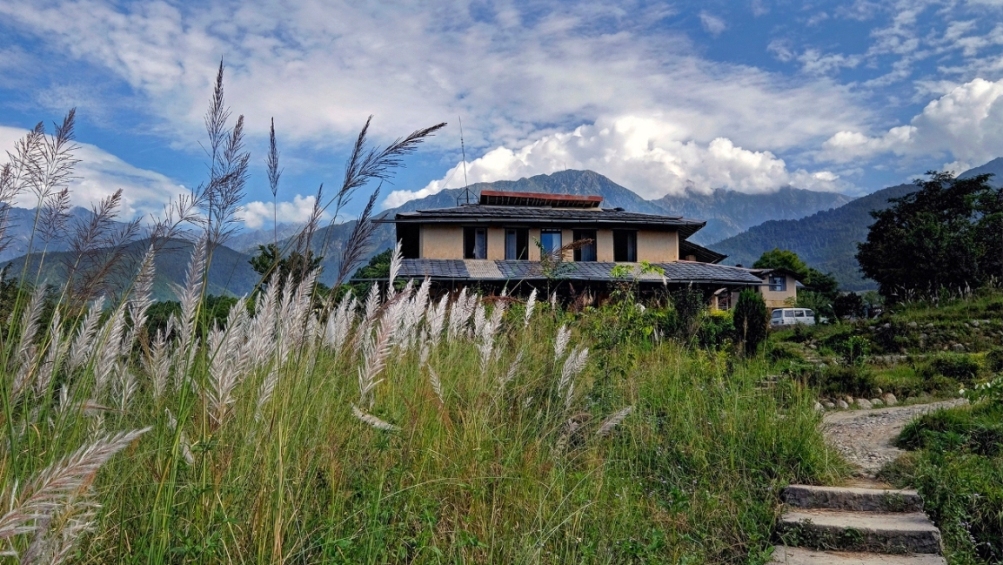
Photo courtesy of Joginder Singh
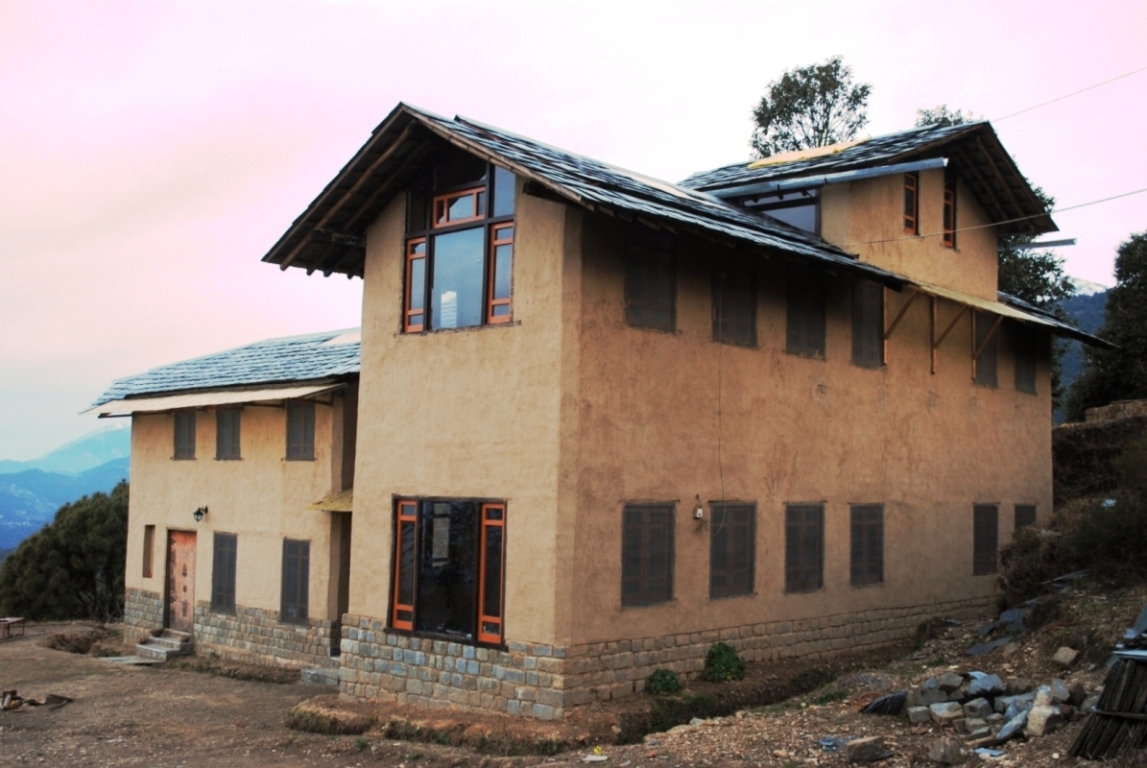
Photo courtesy of dharmalaya.in
![]()
Photo courtesy of Joginder Singh
A deep perusal of Didi's architecture reveals that her buildings seem to grow from earth and are in perfect harmony with nature. This is quite contrary to the present day modern buildings which look to be in conflict with nature. A perfect yang-and-yin relationship between her buildings and landscape around is thus an important salient feature of her architecture.
Didi herself explains, "I am very interested in using landscape as a visual and emotional bridge between the built and the natural. Look at the old buildings, they are beautiful in the landscape, and the new ones are at war with it - they say something. So, we are in conflict with nature, and nature will be in conflict with us. I imagine a building as growing, like a plant, within a landscape. Landscaping is really a key to this thing of marrying the earth to the building.”
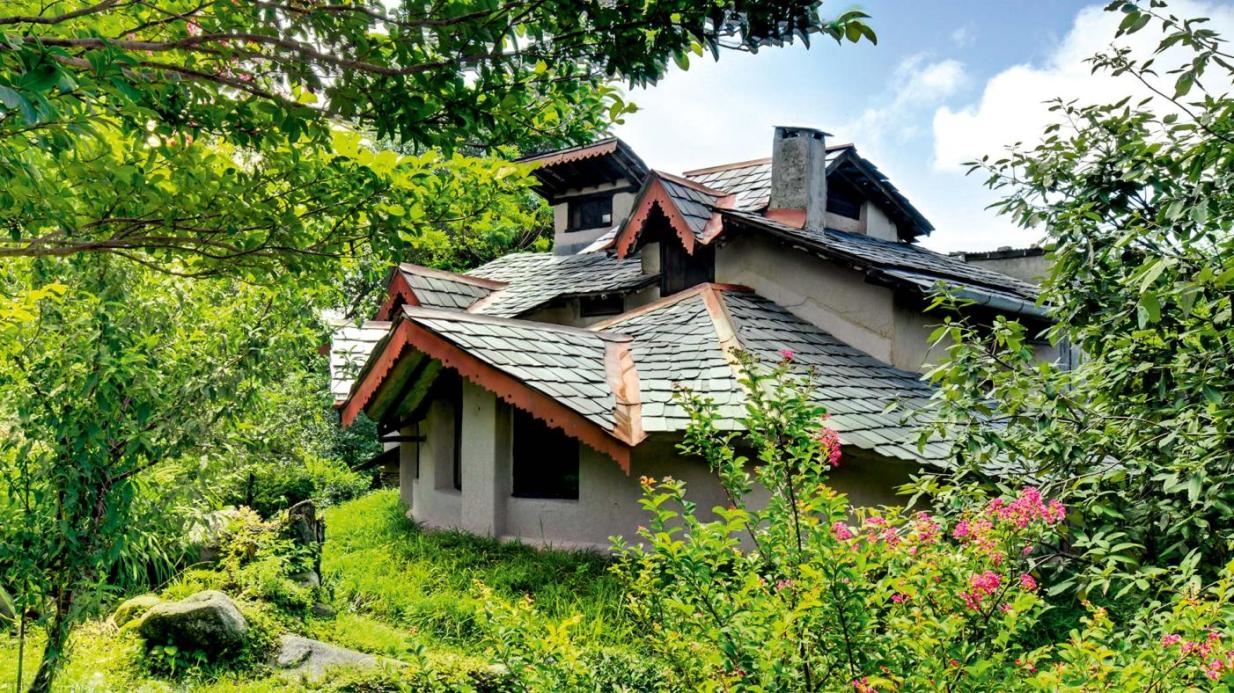
Photo courtesy of Joginder Singh
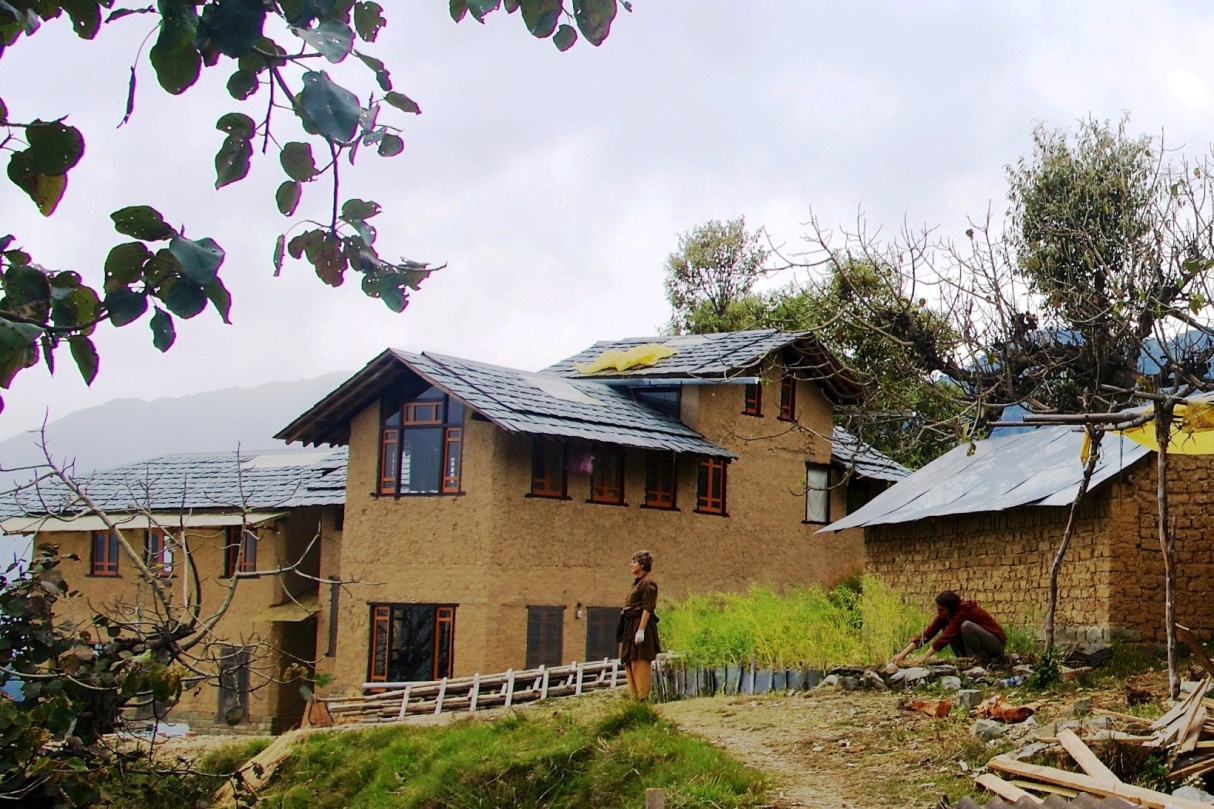
Photo courtesy of Sangha Seva
Another significant aspect of Didi's architecture is the creative use of local materials such as mud, bamboo, river stone and slate. Over the years she has perfected the art of handling these materials in such a way that they create a feeling of belonging, cheerfulness and humbleness.
Didi elaborate this aspect as, "I would like to emphasize playfulness, imagination, and celebration. By celebrating materials, by noticing their qualities, and celebrating them as you put them into building, celebrating the quality or the plasticity of the mud, celebrating the inherent, innate and unavoidable qualities of each material. What the slate does to light, how the materials play within nature. I try to create something that is as quiet as possible. What works, should just look natural, as if meant to be."
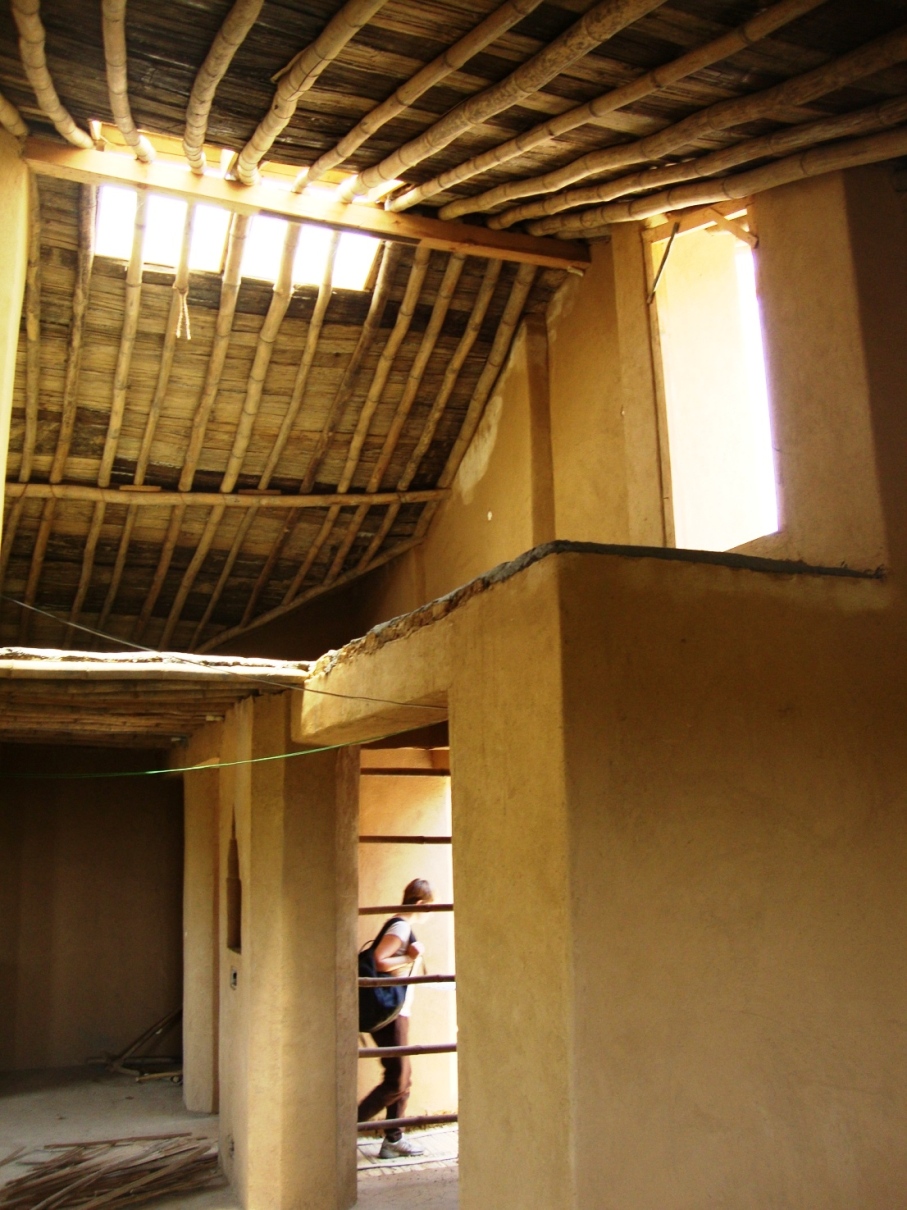
Photo courtesy of wonderlustmum.wordpress.com
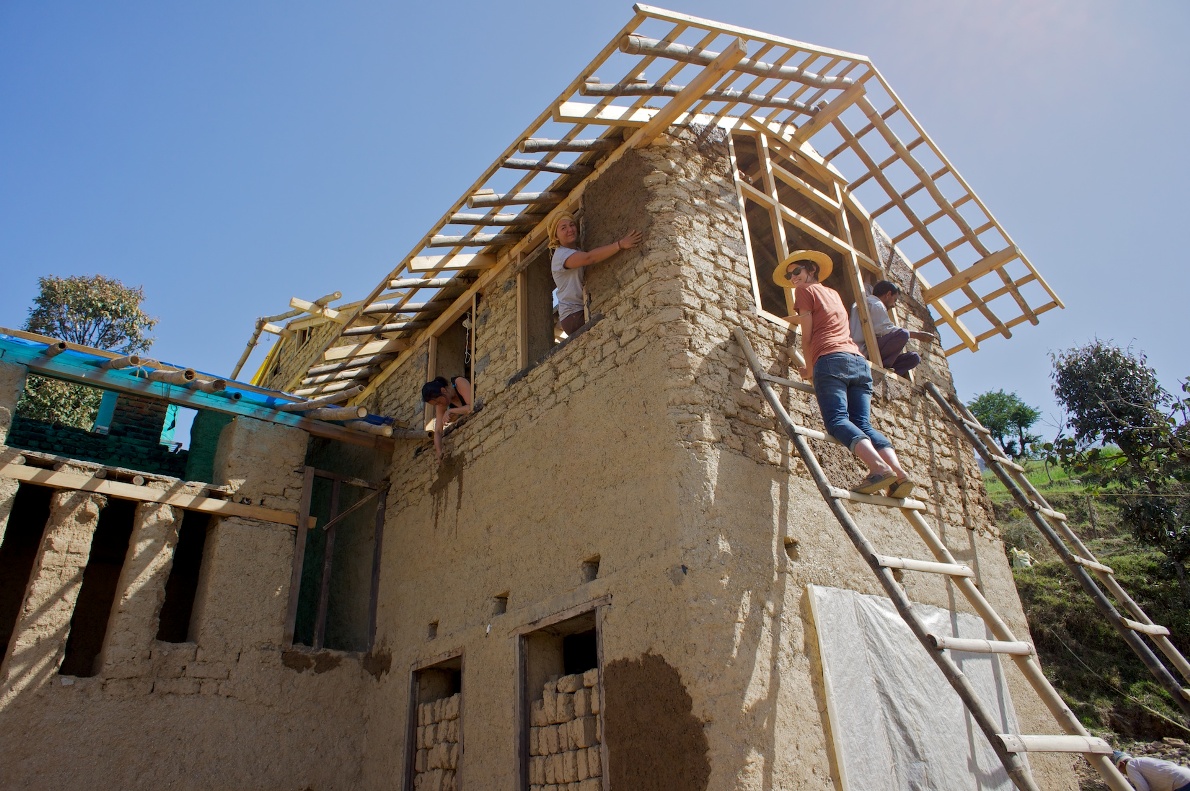
Photo courtesy of Sangha Seva
![]()
Photo courtesy of wonderlustmum.wordpress.com
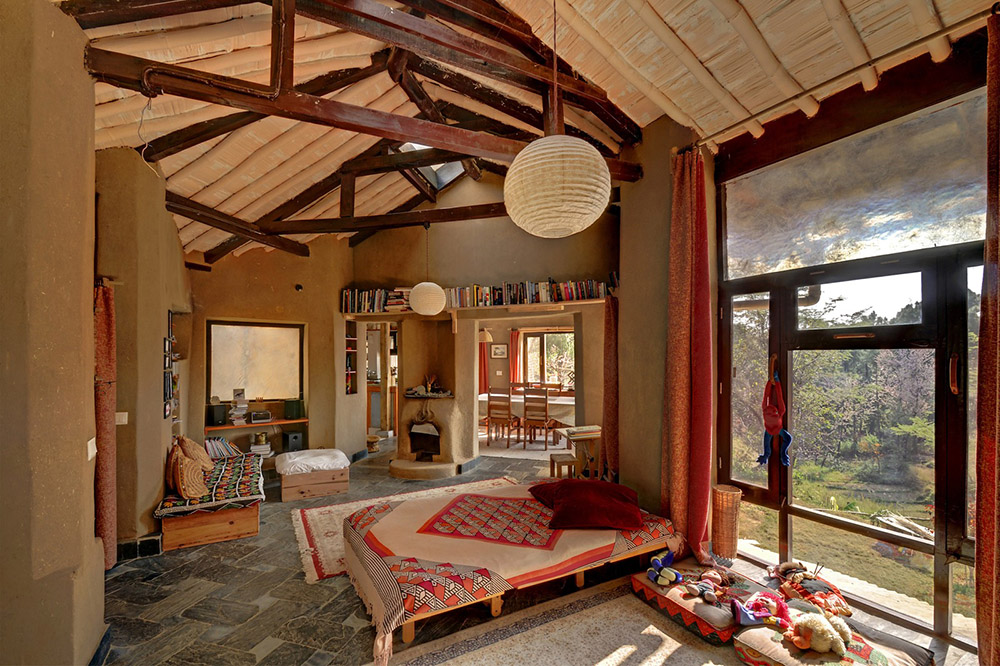
Photo courtesy of Joginder Singh
With an aim to create an eco-friendly architecture, Didi has invented a unique approach of following the 'rhythm of universe' or the 'cycles of nature'. She always tried to synchronise the process of construction with the cycles of nature so that the end product is in harmony with environs. Explaining this approach she says, "One of the many things that’s wrong today is that people are not ready to accommodate their lives to the rhythm of the universe. We don’t see the wisdom of nature. Technology should also be consistent with a humanistic agenda of making people comfortable with themselves, with one another and nature. Eco-sensitive structures need to be built as per the season, whereas cement structures can be built quickly and at any time of the year. One of the problems with contemporary life is losing our contact with the cycles of nature. When I take something out of natural cycle, I think how it affects that cycle, and whether it can be replaced, or reused ... earth from an adobe building can be reused in a vegetable garden."
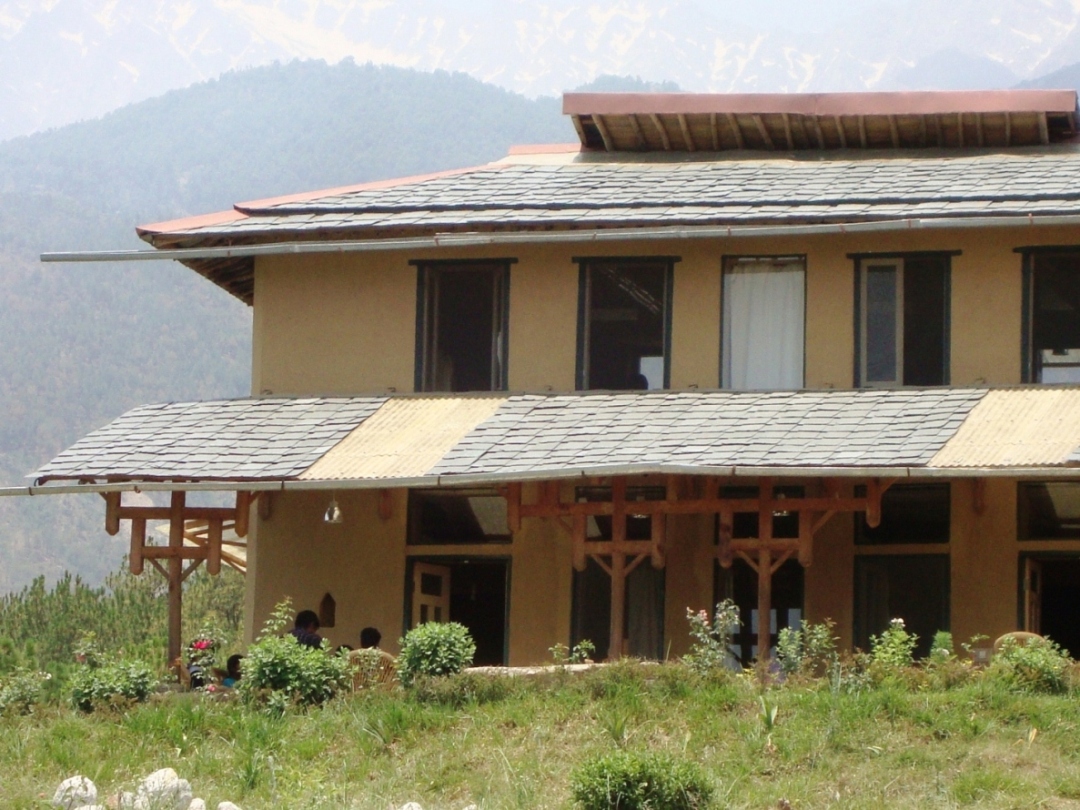
Photo courtesy of wonderlustmum.wordpress.com
As a matter of choice, Didi is very fascinated by yet another important element of architectural design - the 'staircase'. In all her buildings one finds a very creative use of this element vis-à-vis its location, direction, and design. She says, "In stairs the architect is in control. I enjoy planning the experience of what you will pass, what you will have on both sides, and of what you are coming down or heading up towards. The staircase is often the key to organising the space in each design. In the staircases, I feel I am guiding the emotional entry of a person.”
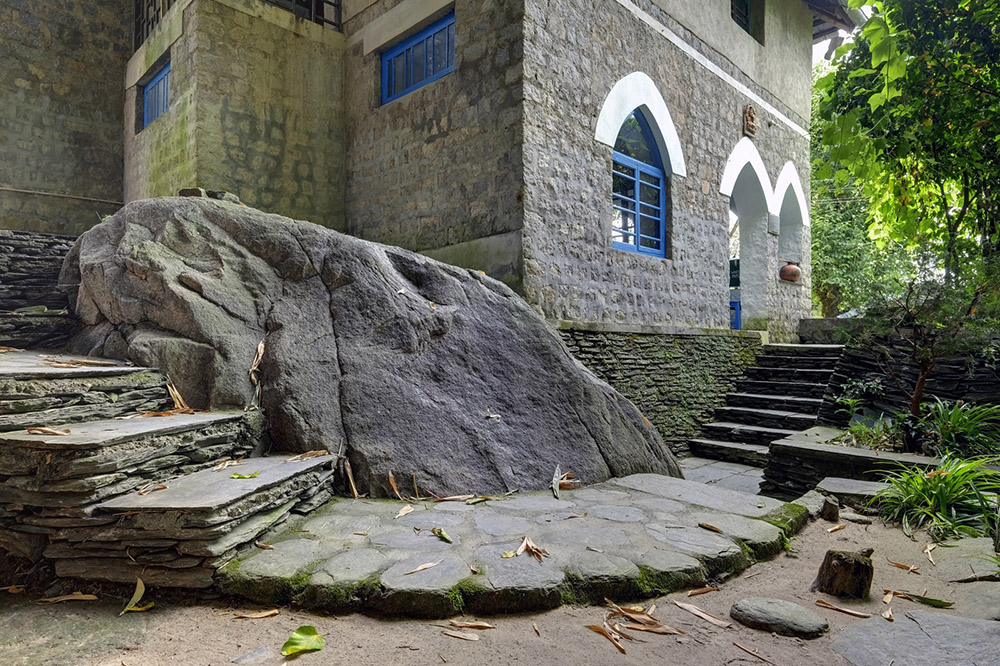
Photo courtesy of Joginder Singh
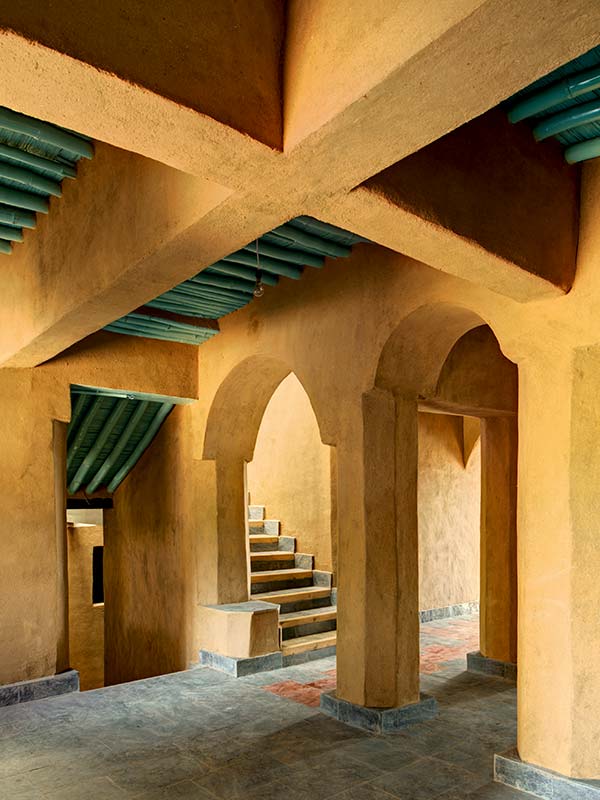
Photo courtesy of Joginder Singh
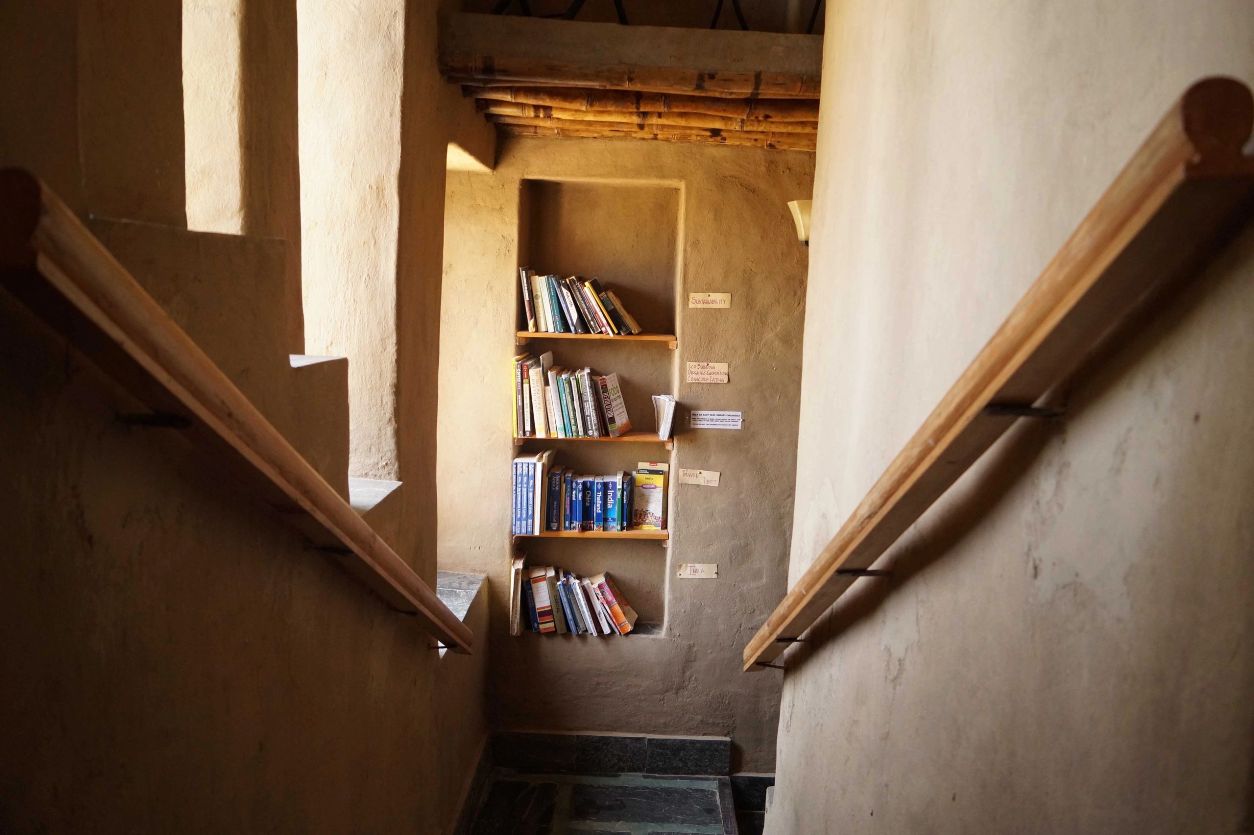
Photo courtesy of windowstovernacular.com
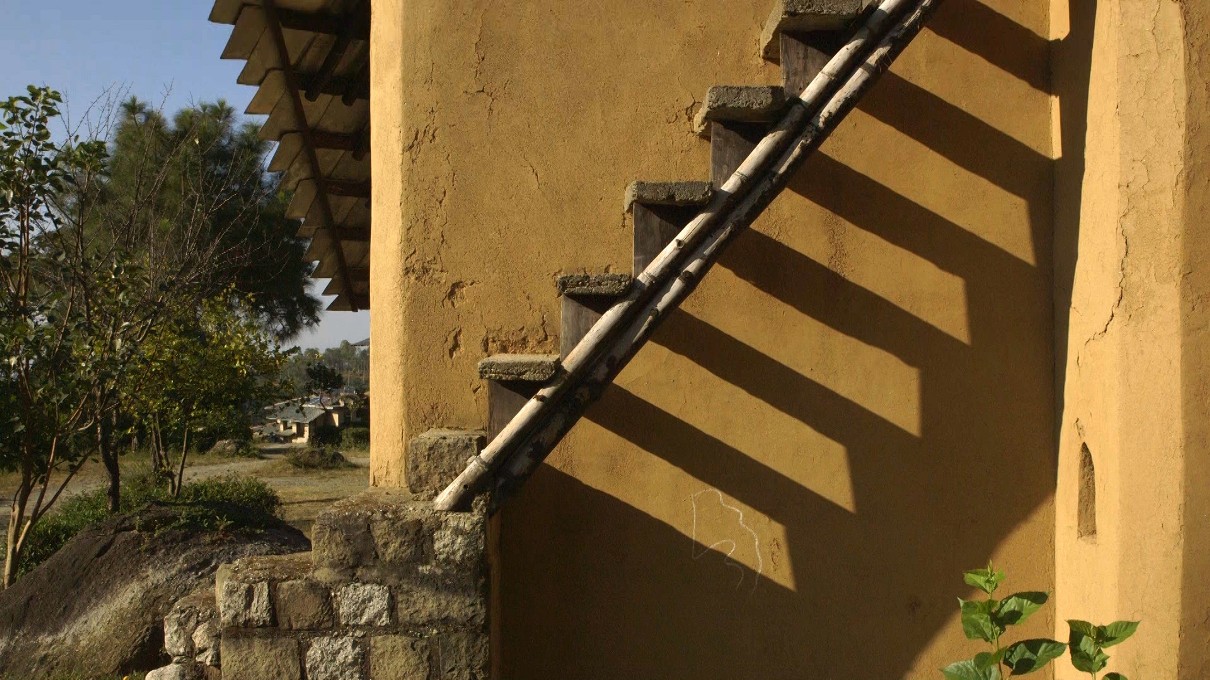
Photo courtesy of Steffi Giaracuni
Being an artist originally, Didi has matured the art of handling natural light in the interiors very imaginatively and artistically. An overview her buildings reveals the emphasis she gives to this vital element of design. For her, the light is the soul of architecture. It highlights the plastic forms, shapes, geometric lines, colours and textures of materials.

Photo courtesy of Steffi Giaracuni
![]()
Photo courtesy of filmfreeway.com
![]()
Photo courtesy of filmfreeway.com
Didi's life and works will always remain a source of inspiration to the present and future generations of architects, artists, environmentalists, and other professionals associated with building construction. Long live the legend.
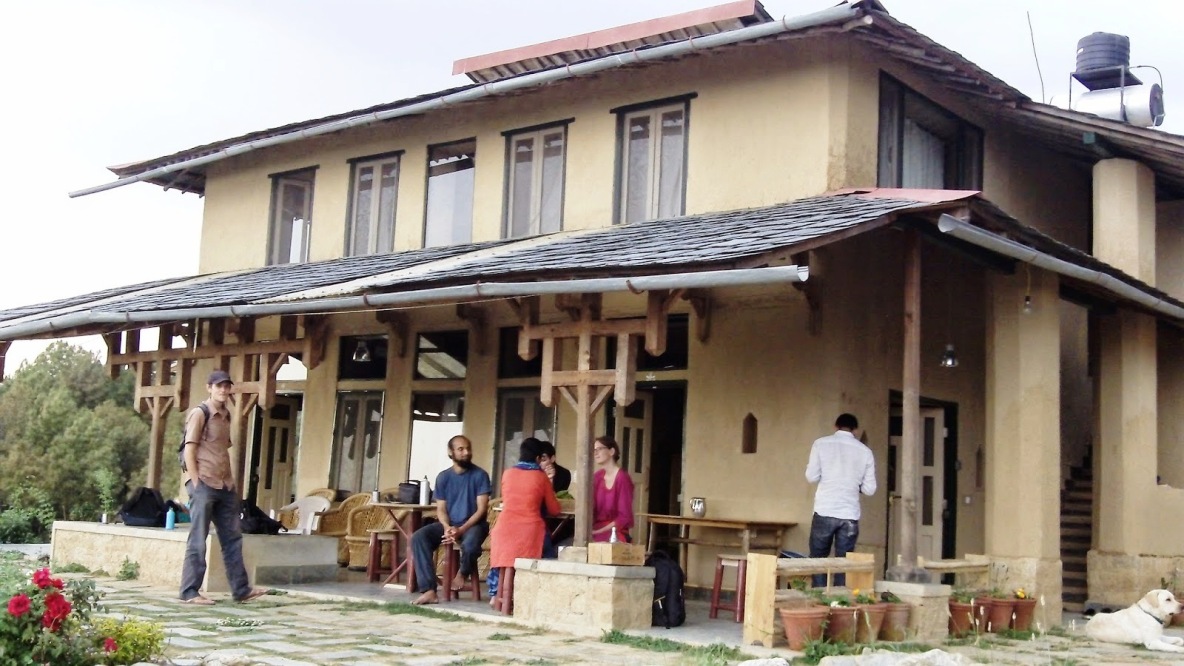
Photo courtesy of mithakamath.blogspot.in
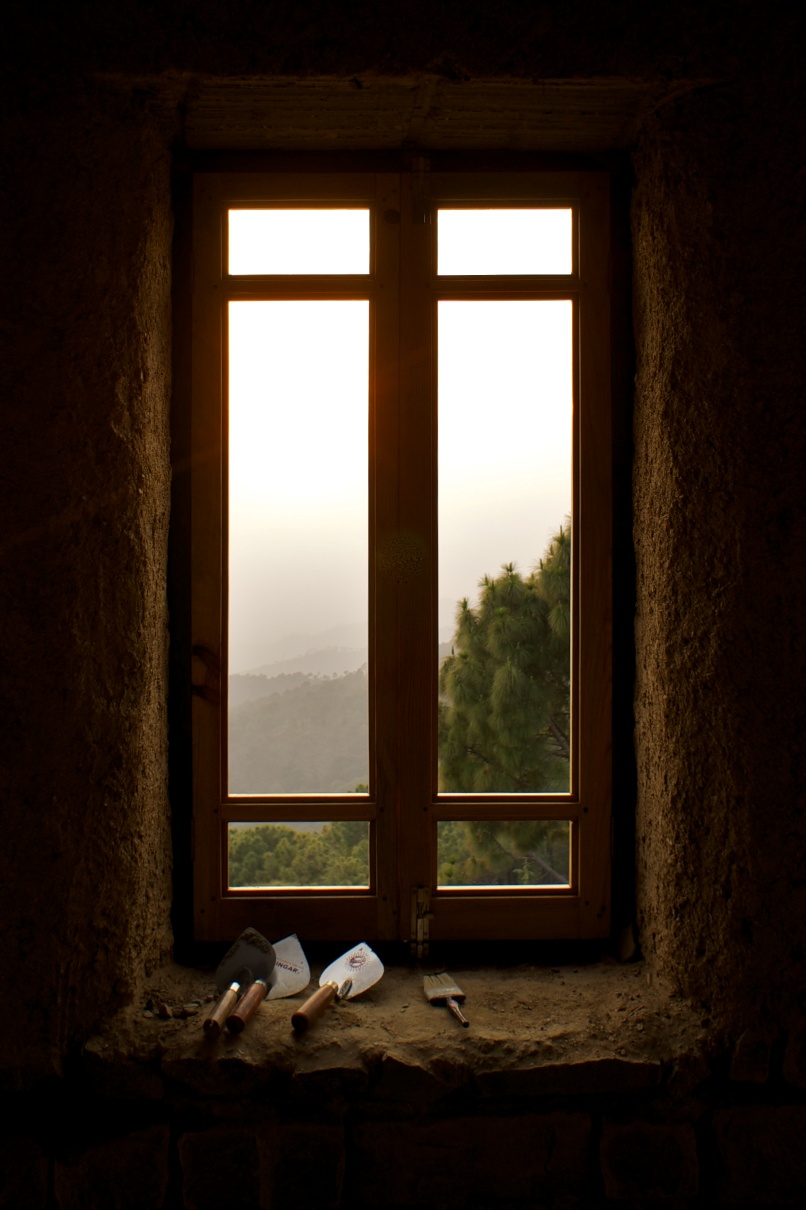
Photo courtesy of Sangha Seva
Top image courtesy of affr.nl
> via Yourstory
